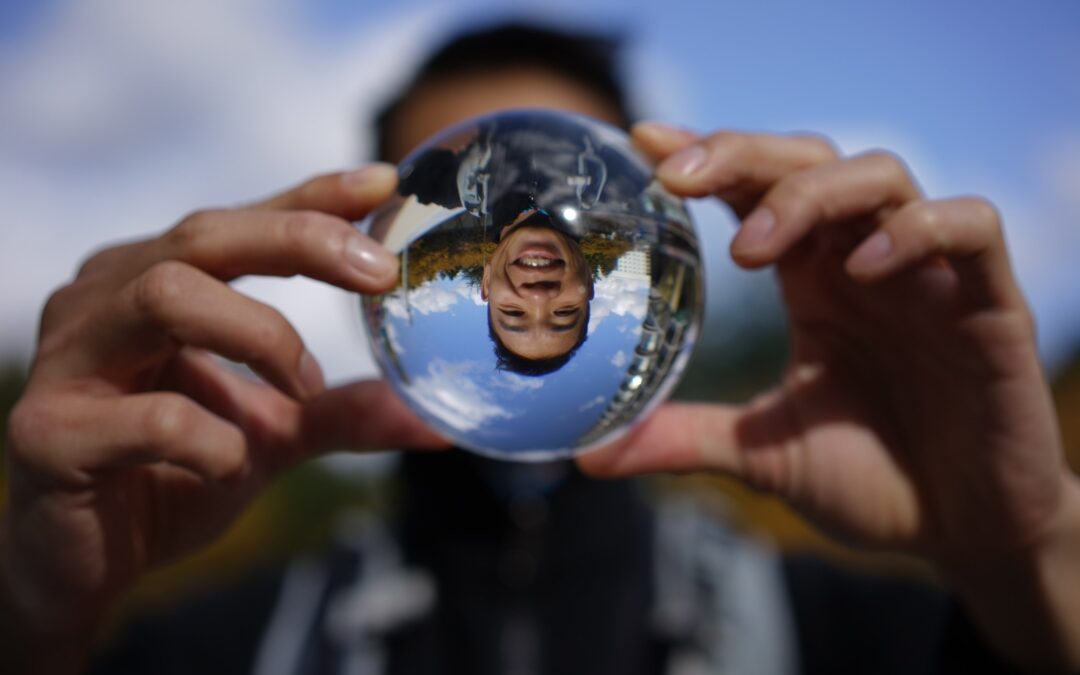Although it may be hard to imagine, an individual who has never seen their reflection would not recognize it. It would first be mistaken as a stranger gazing back at them from some unknown realm, causing great confusion, fear and apprehension.
These types of reactions have been proven by experiments with primates in the wild. After some time, however, during which this stranger perfectly mimics every body movement and facial expression, the individual would eventually come to the realization that this is indeed an image of themselves, magically being reflected back to them. They thus discover that they can control the image they see simply by making a change in themselves first.
The external, material world, with all of its circumstances, events and experiences, is also a reflection, but one of a much higher order of magnitude and complexity. In this case it is a representation of one’s internal landscape, which is composed of thoughts, beliefs, feelings, desires, and so much more.
As long as there is no recognition that what is occurring on the outside is merely a reflection of what’s going on inside, daily life will continue to appear totally random and unpredictable, also causing its own confusion, fear and apprehension.
It often takes a lifetime for a person to fully realize this existential relationship. When this realization dawns on the individual, they begin to understand that they can control their external world only by making changes in their internal landscaping first.
No one would paint a smile on a mirror in order to change the expression seen there. We know that all we need do is smile, and it is immediately reflected back to us.
Yet this is what one often attempts to do in the external world through actions that do not reflect their internal landscape. Without the necessary changes being made on the inside first, any attempt to alter the external world through action will not truly change anything.
In fact, it often makes things worse. Once the internal changes have been made, however, they will spontaneously be reflected back as changes in the circumstances, events and experiences of our external lives. It is only then that our outward actions can become a true fulfillment of our inner being.
An example of this inner landscape/outer reality dynamic is an individual with obsessive/compulsive hoarding disorder. The confusion and chaos of their internal landscape is reflected in their cluttered and disorganized surroundings, and in their inability to part with anything for any reason.
On an intellectual level they are often able to understand the need to get rid of their hoard. However, they are not emotionally and psychologically able to deal with the root cause of their hording behavior, which often involves unprocessed grief and trauma they have experienced in life.
If the hoard is cleaned up without the individual first receiving the proper behavioral and treatment for the unprocessed emotions, the inner/outer mismatch will cause severe cognitive dissonance and psychological trauma. Consequently, the hoard will return with a vengeance. Once treatment of the individual has been successfully accomplished, the hoarding will resolve on its own, since it no longer matches the new inner self.
Mantras For Change
A guru from India once visited New York City. He stopped by a hot dog stand and said to the hot dog vendor, “Make me one with everything.” After receiving his hot dog, the guru gave the vendor a $20 bill. The vendor put the $20 in his cash drawer and closed it. The guru then asked, “Where is my change?” The hot dog vendor responded, “Ah yes, dear guru, change. Change must come from within.”
“Be the change that you wish to see in the world” ~ Mahatma Gandhi
“When you change the way you look at things, the things you look at change.” ~ Wayne W. Dyer
“Everyone thinks of changing the world, but no one thinks about changing [themselves].” ~ Leo Tolstoy
“Yesterday I was clever, so I wanted to change the world. Today I am wiser, so I am changing myself.” ~ Jalaluddin Meylana Rumi
“As above, so below. As within, so without.” ~ Hermes Trismegistus
“Do unto others as you would have them do unto you.” ~ Luke 6:31
Reprinted with permission of the author from the forthcoming book Pearls of Perception by Clayton Brown.
Clayton Brown has spent nearly 50 years as a registered pharmacist and student of metaphysics. One of his early influences was the study of TM taught to him by a student of Maharishi Mahesh Yogi. He has been actively engaged in metaphysical writing for the past five years, as various spiritual personalities and channels continue to shape his spiritual journey. He can be reached at pearlsofperception2025@gmail.com
Find holistic Counseling and Therapy Resources in the Spirit of Change online Alternative Health Directory.
RELATED ARTICLES:
Can You Change Your Personality? Psychology Research Says Yes
How To Tap Into Your Inner Guidance To Give Yourself An Intuitive Reading


Recent Comments